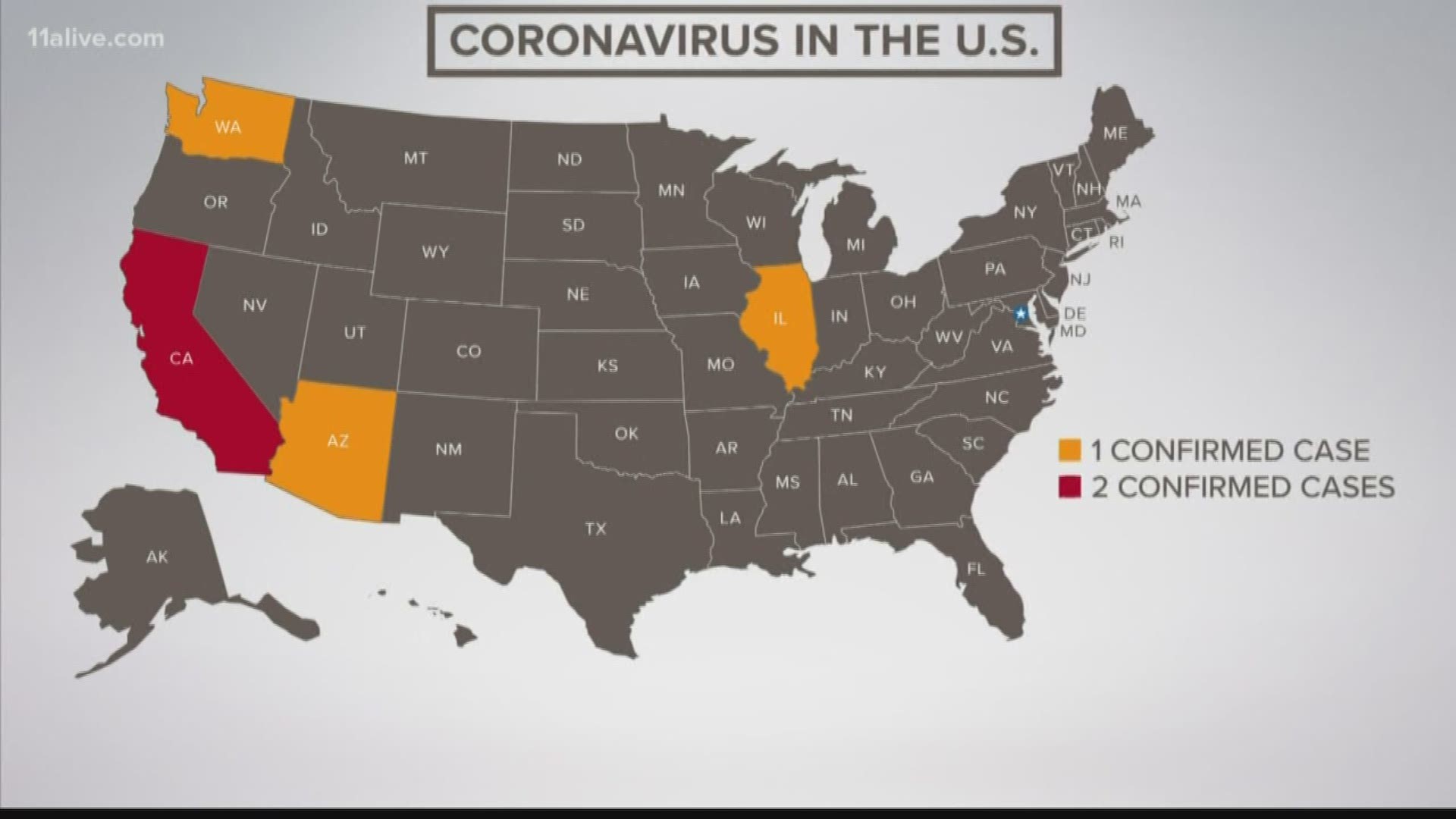Health officials say the U.S. has five confirmed cases of the new pneumonia-like virus from China and are currently testing "110 persons under investigation" from 26 states,
Two new confirmed cases were announced Sunday — one in Los Angeles County in California and the other in Arizona. All of the U.S. patients had traveled to Wuhan, the Chinese city that is the center of the outbreak.
Officials with the Arizona Department of Health services said the patient in Arizona was not severely ill and was currently in home isolation. The Los Angeles patient was taken by an ambulance to the hospital from Los Angeles International Airport (LAX) after reporting that he wasn't feeling well, according to the Associated Press.
Three previously confirmed cases were in Orange County, California; Washington state; and Chicago. The CDC, who are screening passengers on direct flights from Wuhan to five major airports in the U.S., says they expect more Americans to be diagnosed with this new virus. It has an incubation period of about two weeks.
Nancy Messonnier, Director for the National Center for Immunization and Respiratory Diseases said in a press conference there has been no reports of human to human transmission in the U.S. among the confirmed cases, and the virus was not spreading in the community. In a tweet, the CDC said the virus' risk to the US public was "still considered low."
32 cases tested in the U.S. have been confirmed negative. According to Meissonier, the 110 persons under investigation are people who have been in Wuhan and are exhibiting symptoms or people who have had direct contact with the five confirmed cases in the U.S.
Five airports in the U.S. continue to screen passengers traveling through Hubei province, where the city of Wuhan is located. Although there are no direct flights in operation from Wuhan to the U.S, some passengers continue to travel from Wuhan to other countries before entering the U.S.
Meissonier said the CDC recommends individuals avoid nonessential travel to Hubei province and avoid interaction with sick people. Those planning to travel to China should discuss the travel with their healthcare provider. Meissonier said further changes to current travel recommendations may be announced in the next few days.
Canadian health officials confirmed the second "presumptive" case of the the virus in Ontario. The patient was identified as the wife of the man believed to be Canada's first case of the virus, according to a statement by Dr. David Williams, Ontario's chief medical officer, to CBC News. Further testing with be done at Canada's National Microbiology Laboratory will be done to confirm the case, according to Global News Canada.
The virus can cause fever, coughing, wheezing and pneumonia. It is a member of the coronavirus family that's a close cousin to the deadly SARS and MERS viruses that have caused outbreaks in the past.
The death toll for the virus in china has risen to 80. Increasingly drastic anti-disease efforts began with the Jan. 22 suspension of plane, train and bus links to Wuhan, a city of 11 million people in central China where the virus was first detected last month. That lockdown has expanded to a total of 17 cities with more than 50 million people in the most far-reaching disease-control measures ever imposed.

